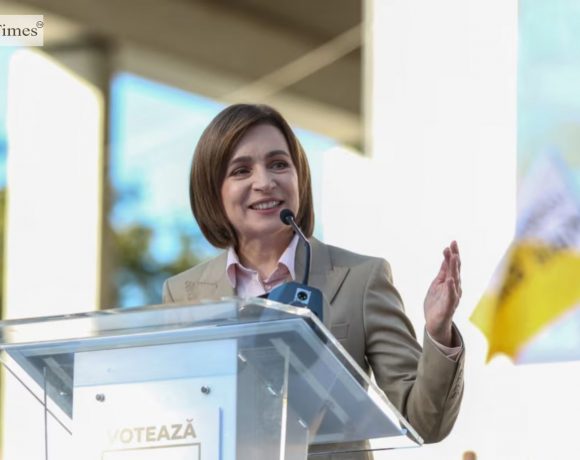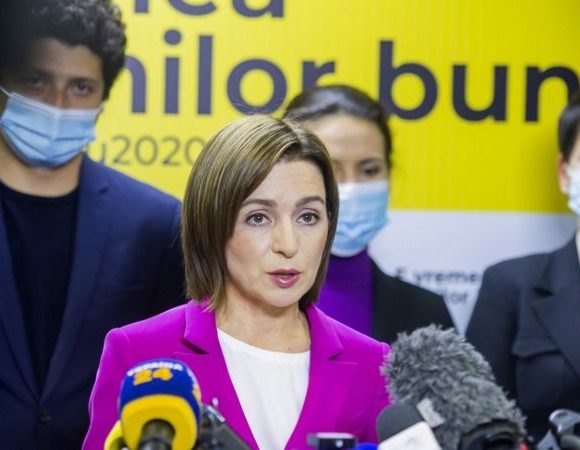
Moldova’s pro-European Party of Action and Solidarity (PAS), led by President Maia Sandu, claimed a decisive win in Sunday’s parliamentary elections, securing 50.2% of the vote against 24.2% for the Russian-leaning Patriotic Bloc. The result gives Sandu’s government a clear mandate to pursue Moldova’s long-term goal of EU membership by 2030, a move seen as a significant step away from Moscow’s influence in the small former Soviet republic. European leaders, including France, Germany, and Poland, congratulated Moldova on the peaceful conduct of the elections, while European Council President Antonio Costa praised voters for choosing “democracy, reform, and a European future.”
The elections were held under tense conditions, with widespread reports of Russian-backed disinformation campaigns, vote-buying attempts, and cyberattacks targeting election infrastructure. Sandu’s administration highlighted these efforts, noting fake bomb threats at polling stations and attacks on government websites. Russia denied meddling and instead accused the Moldovan government of manipulating the vote, with former President Igor Dodon calling for protests alleging election annulment, though no evidence was presented. Authorities warned of possible unrest in the coming days.
Moldova, a country of 2.4 million people, faces ongoing economic challenges including high inflation and energy costs, while attempting to meet the EU’s stringent membership requirements. Analysts see Sunday’s outcome as a strong endorsement of PAS’s European integration agenda but caution that bridging domestic divides and communicating the benefits of EU accession to sceptical Moldovans remain key challenges ahead.
Pic Courtesy: google/ images are subject to copyright

